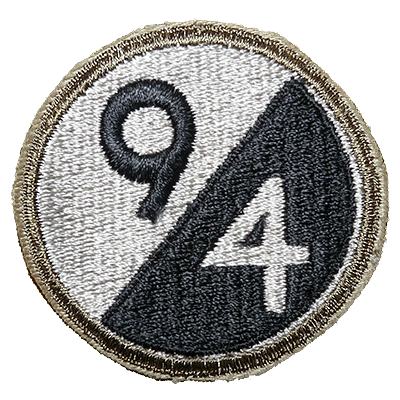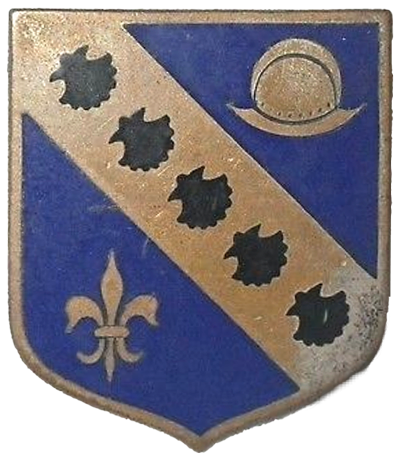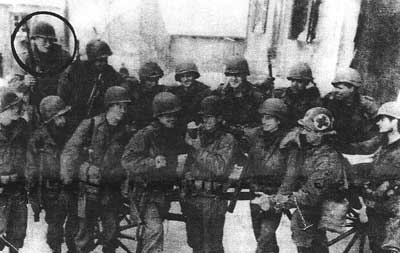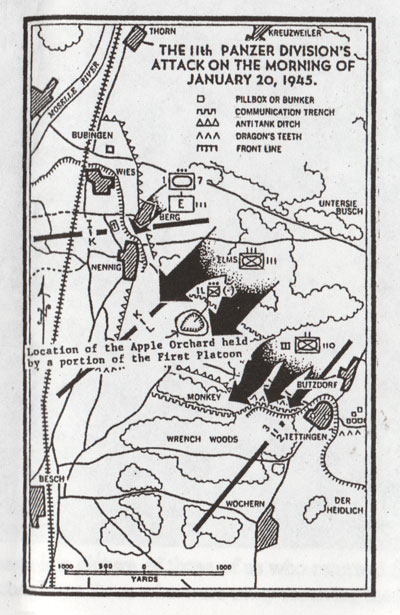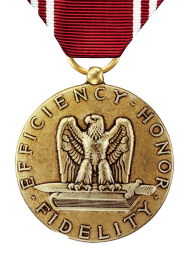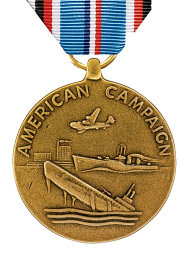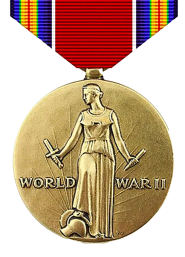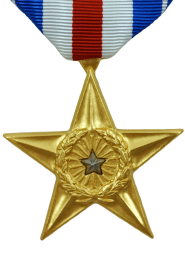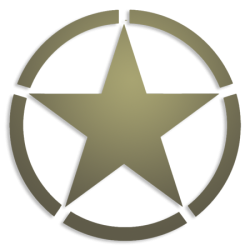During the night of January 19, the Company L front was attacked by overpowering forces. Casualties included a large number of wounded, killed, and those who were taken prisoner. The German attack encircled the "apple orchard" and those of us who occupied it. At daybreak, it was our practice to’ check the foxholes on either side to determine that all was well. We found that a series of the foxholes to our flanks were empty. We realised that our positions had been overrun and that we were a group of 26 people, isolated from and without communication with any friendly forces. The only food, water, and ammunition available was what we had brought with us into this position the night before. It was the ordinary practice to receive re-supplies of these essentials on a daily basis but we realised that such was not likely to be forthcoming.
First, we looked for some avenue of escape. Lt. Travers agreed to take 2 men, Sgt. Ed Casey and PFC T. R. Wilson, to probe the German positions between our location and that of the nearest friendly forces. Somehow they managed to get through the German lines. They deemed it futile to try to get back to us to lead us out. Rather, they sought help for the rescue of the 23 of us who remained in the apple orchard. We could not know it at the time, but the response to their request was to the efi‘ect that our entire regiment was under constant and vicious attack so that there were no available personnel to take part in a rescue effort. As time passed, we who remained in the apple orchard could only guess as to the fate of the 3 who had lefi us, but we concluded that there was little chance of their securing help. Although we could not know it, Lt.Travers had reported our circumstance with the estimate that it was highly unlikely that we could hold out for more than a few hours. Our group was deemed to be captured or annihilated.
We were "written of“ of the military situation maps and deemed to be "missing in action". Escape was not a viable option. Following military procedure a telegram was sent from the War Department to my‘ parents on February 5, 1944.
The text of that telegram is as follows:
The Secretary of War desires me to express his deep regret that your son Private First Class Clayton R. Byrd has been reported missing in action since twenty January in Germany. If further details or other information are received you will be promptly notified.
J. A Ulio, the Adjutant General
We knew that all avenues of escape were blocked. This brought us to the critical question as to whether we should surrender. Our group huddled together on this issue. This was not a situation where the ranking person gave orders. Each of us participated in this discussion as equals. l believe that, to the man, we concluded that our position was not tenable and that our chance of surviving a fight was nil. From that point of view, the reasonable and honourable thing to do would be to surrender. HOWEVER, as we came to the front we now occupied we had seen the bodies of a number of American soldiers lashed to tree trunks and obviously used as target practice. Although many German units would not stoop to this kind of practice, we now faced this reality. Our conclusion was that we would face that same fate if we surrendered.
Given the circumstance, it was our belief that there was no reasonable chance of survival - no matter what we decided. That being the case, we all agreed that we would defend our positions to the man - and take as many Germans with us as possible in the process. Strangely, there was a strong sense of determination and a kind of peace within the group when that decision was made. Because of the limited supply of our ammunition, we detained that we would fire only when we had specific and viable targets.
Afier Lt. Travers had failed to return, our group went out a couple of times at night to try to find a way out. At great personal risk, while the rest of us would wait as a group, Johnny Dresser and Jim Meneses would scout out an area to determine if there might be any way to get us through. None of these efforts met with success. In each case, we reluctantly retreated back to the relative safety of our foxholes.
Initially, it seems that the Germans did not realise that the 23 of us occupied this apple orchard in their now-rear area. That would soon change. Perhaps it was the next morning when a German military unit (platoon-sized?) marched in a close-order formation along the draw that I have previously mentioned. I can't imagine a military unit marching that way anywhere near a combat area, but they did. When they came into optimum range, we fired. That group was decimated. Few escaped.
German medics were soon on the scene to treat those who lived. We allowed the medics to tend to their wounded. But, it was now obvious that the enemy knew our location. It seems that the early part of every morning was filled with the sound of German tanks operating off in the distance. Each time that we heard them, we feared that we might be their target. Except for a 45 caliber Thompson sub-machine gun operated by our platoon sergeant, we had no weapons except those of 30 caliber. These would be no match against tanks. Fortunately for us, no enemy tanks ever came our way.
Since we had made ourselves known, the Germans began to drop mortar shells into the orchard at irregular intervals. I believe that it would have taken a direct hit into one of our foxholes to do real harm. That did not happen. One shell detonated on the edge of the foxhole that I occupied. It destroyed a couple of pieces of equipment that we had placed at the edge of the foxhole and showered us with a soot-like black smoke, but we were not harmed. One might think that a supply of drinking water would be less than critical with several inches of snow all around. We had no I means of melting the snow except with our body heat. In 0-degree weather, melting snow with body doesn't work very well. We could take a canteen cup full of snow and place it against our body to melt it, get very cold in the process, and the yield wound up to be negligible.None of us dared lift our heads above the edges of the foxholes during the day when we could be seen. Even the movement between our foxholes at night was dangerous. Going down the draw to the small stream to get drinking water was even more dangerous — but, a risk that would be taken.
On the night of January 23, John Dresser, Charlie Wilcox, Al Wakser, and Earl Freeman volunteered to gather as many canteens as they could carry and go down the draw to the stream to bring back a supply of water. John Dresser reports that he was side by side with Earl Freeman and bent over in the process of filling canteens, when an explosion occurred. That explosion caused both of them to be thrown up into the air and Earl Freeman was killed instantly from a wound to his chest. The party returned with the canteens and to report Earl's death. (There is a P.S. to this event in that Lynn Freeman, Earl's son, a baby at the time of Earl's death, learned of our Co. L reunion in 1998 and came to be with us that year, and in successive years, so that he could learn something of the circumstances of his father's death. In addition to his learning some of these facts, I believe that our telling Lynn something about the esteem with which we held Earl led to a clearer and better appreciation of his father. It was also uplifting to those of us at the reunion to learn that Lynn's mother,- now deceased, set aside the $10,000 of insurance money, payable because of Earl's death, to finance Lynn's college education. Lynn was the first of his family to become a college graduate.)
There was one occasion when our look-out revealed that several German soldiers had crawled along the hedge that was off to the right as we faced the woods. It was their obvious intent, to get a better view of our position. The foliage of the hedge was too thin to give them the protection they needed. Very carefully, we lined up one rifleman for each of those Germans and, subject to a voice command of ready, aim, fire, we fired simultaneously. I had a BAR (Browning Automatic Rifle) and raked the area with automatic fire. We saw no additional movement from that area.
Other events took place that put us in direct contact with the Germans. Early on, there were instances when, in my opinion, Germans stumbled into our area without being aware of our presence. This became a deadly mistake for them. From a couple of them we got some German bread from their packs. It was not nearly as good as our own but we were not very choosy at the time. I also took possession of a P-38 pistol from one of them (It was later stolen from me).
There were 2 instances of planned assaults on our positions. One day, a numerically superior force of Germans emerged from the wooded area, perhaps S00 yards distant, and approached us across the very flat and snow-covered intervening space. We withheld our fire until they were within a range that presented more sure targets (less than 200 yards). For them, disaster. A second assault made a lot more sense from a tactical point of view. It seems that they were to follow the same route as the prior attempt, but under the cover of darkness. They were to
send up a flare as they arrived at our positions so that they "could see us to wipe us out. Such a plan should have worked, but they sent up the flare prematurely - while they were still some distance from us but well within our range. They presented themselves as great targets. Again, disaster - for them.
Afier a week, we looked into the direction of our friendly forces to see an American soldier, then more, coming across a hilltop at a great distance. We felt both relief, joy, and fright.
The Germans had retreated behind us but the very serious question was: how do we make contact with those American soldiers and convince them that we are friends and not Germans? It is probable that we did not do it the right way. In our excitement we waved in any way that we could to get their attention. Surely they would know that the Germans would not make that kind of effort to attract their attention. It worked. Even in our weakened condition, afler having gone for days without food, we trudged through what seemed to be waist-deep snow to meet those who would rescue us.
We left behind an apple orchard showing the horrors (or fruits) of our existence there. We lefi behind scores of German bodies - and one of our own. We had made the tight decision when we had determined to defend our positions to the man - and take as many Germans with us as possible in the process. For our efforts, each of us would be decorated with the Silver Star (among military decorations, only outranked by the Congressional Medal of Honour and the Distinguished Service Cross). In addition to the loss of Earl, several of us would suffer in varying degrees fiom frostbite, including the loss of toes. On the other hand, most of us would remain to continue the fight against the Germans. Seven days earlier Captain Smith had predicted that his company would hold its position for "about 7 days." Although the rest of Co. L now consisted of only 14 men, we who had spent the week in the orchard had redeemed his prophecy. We had matured as soldiers.
With our return back to friendly forces the War Department would send another telegram back to my parents on February 11th, 1944, that read as follows:
"I am pleased to inform you your son Private First Class Clayton R. Byrd returned to duty twenty-six January".
L J. A. Ulio, The Adjutant General






